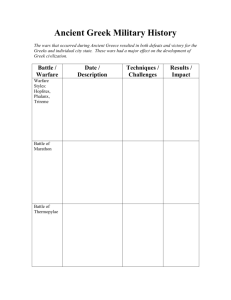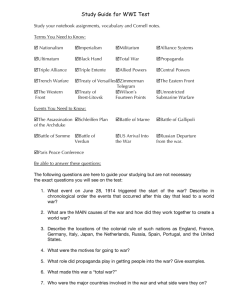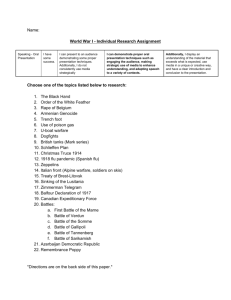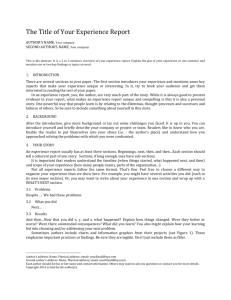Pylos and Sphacteria 425: Sparta's Island of
advertisement
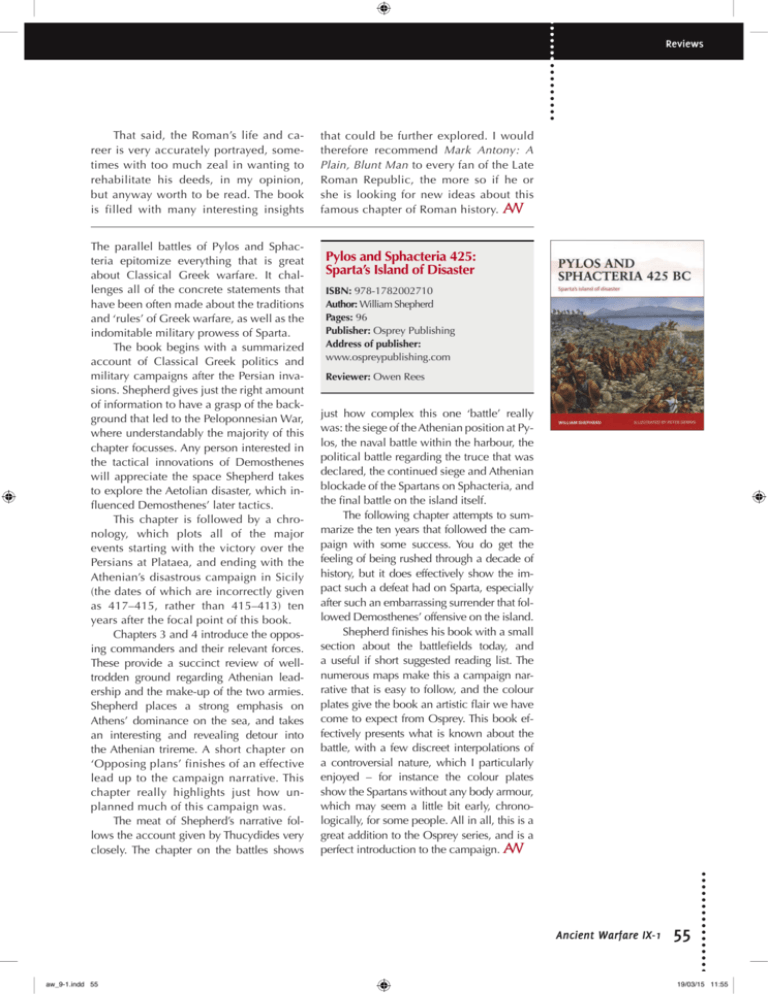
Reviews That said, the Roman’s life and career is very accurately portrayed, sometimes with too much zeal in wanting to rehabilitate his deeds, in my opinion, but anyway worth to be read. The book is filled with many interesting insights The parallel battles of Pylos and Sphacteria epitomize everything that is great about Classical Greek warfare. It challenges all of the concrete statements that have been often made about the traditions and ‘rules’ of Greek warfare, as well as the indomitable military prowess of Sparta. The book begins with a summarized account of Classical Greek politics and military campaigns after the Persian invasions. Shepherd gives just the right amount of information to have a grasp of the background that led to the Peloponnesian War, where understandably the majority of this chapter focusses. Any person interested in the tactical innovations of Demosthenes will appreciate the space Shepherd takes to explore the Aetolian disaster, which influenced Demosthenes’ later tactics. This chapter is followed by a chronology, which plots all of the major events starting with the victory over the Persians at Plataea, and ending with the Athenian’s disastrous campaign in Sicily (the dates of which are incorrectly given as 417–415, rather than 415–413) ten years after the focal point of this book. Chapters 3 and 4 introduce the opposing commanders and their relevant forces. These provide a succinct review of welltrodden ground regarding Athenian leadership and the make-up of the two armies. Shepherd places a strong emphasis on Athens’ dominance on the sea, and takes an interesting and revealing detour into the Athenian trireme. A short chapter on ‘Opposing plans’ finishes of an effective lead up to the campaign narrative. This chapter really highlights just how unplanned much of this campaign was. The meat of Shepherd’s narrative follows the account given by Thucydides very closely. The chapter on the battles shows that could be further explored. I would therefore recommend Mark Antony: A Plain, Blunt Man to every fan of the Late Roman Republic, the more so if he or she is looking for new ideas about this famous chapter of Roman history. 0 Pylos and Sphacteria 425: Sparta’s Island of Disaster ISBN: 978-1782002710 Author: William Shepherd Pages: 96 Publisher: Osprey Publishing Address of publisher: www.ospreypublishing.com Reviewer: Owen Rees just how complex this one ‘battle’ really was: the siege of the Athenian position at Pylos, the naval battle within the harbour, the political battle regarding the truce that was declared, the continued siege and Athenian blockade of the Spartans on Sphacteria, and the final battle on the island itself. The following chapter attempts to summarize the ten years that followed the campaign with some success. You do get the feeling of being rushed through a decade of history, but it does effectively show the impact such a defeat had on Sparta, especially after such an embarrassing surrender that followed Demosthenes’ offensive on the island. Shepherd finishes his book with a small section about the battlefields today, and a useful if short suggested reading list. The numerous maps make this a campaign narrative that is easy to follow, and the colour plates give the book an artistic flair we have come to expect from Osprey. This book effectively presents what is known about the battle, with a few discreet interpolations of a controversial nature, which I particularly enjoyed – for instance the colour plates show the Spartans without any body armour, which may seem a little bit early, chronologically, for some people. All in all, this is a great addition to the Osprey series, and is a perfect introduction to the campaign. 0 ancient warfare iX-1 aw_9-1.indd 55 55 19/03/15 11:55

